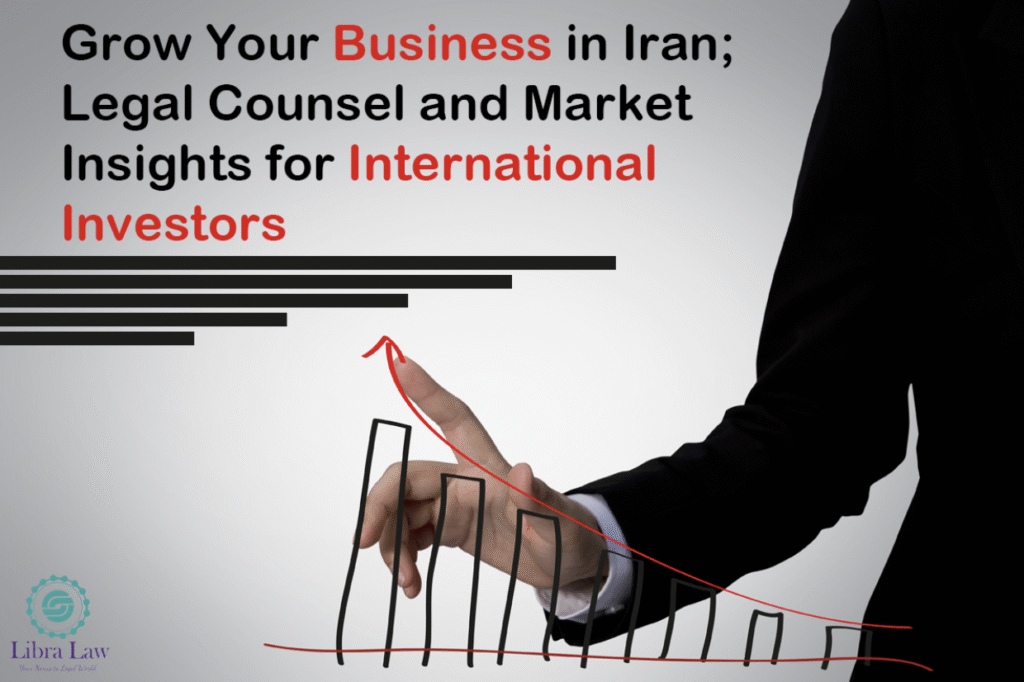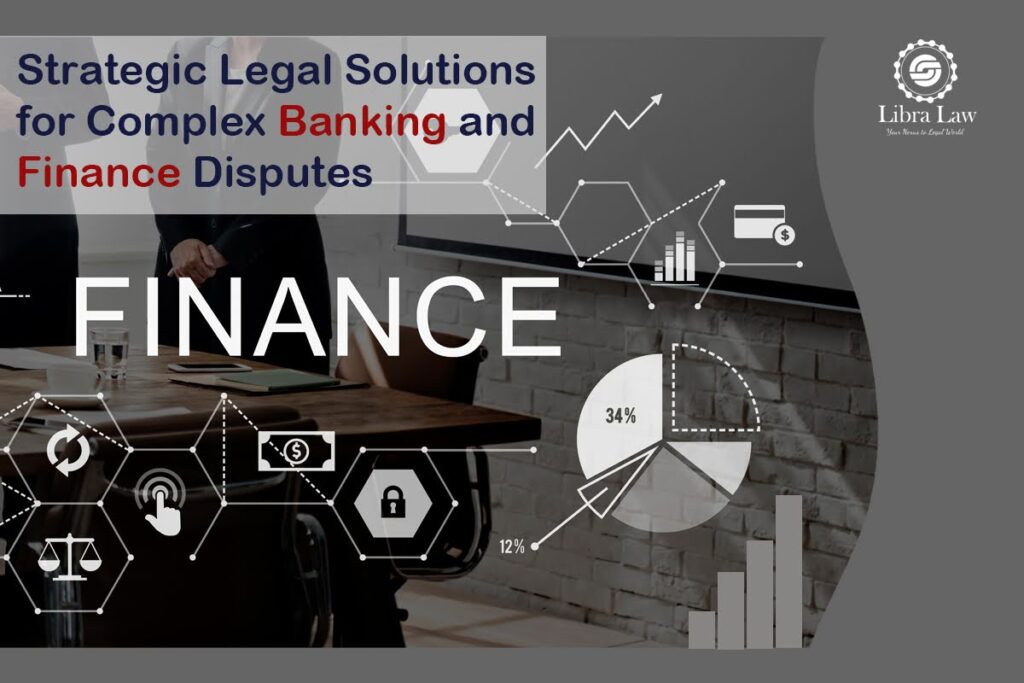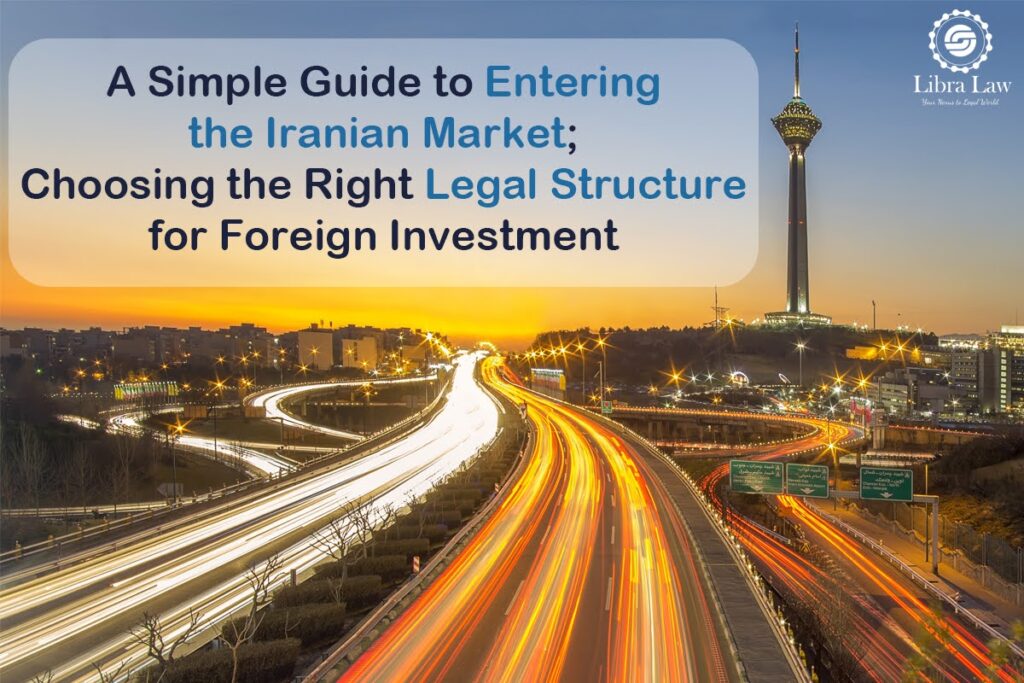In today’s high-stakes commercial world, where every contract can carry long-term financial, legal, and strategic consequences, understanding your contractual obligations isn’t just smart; it’s essential; This is particularly true in the context of Business Contracts in Iran; Strategies to Protect Your Interests, where local laws, regulatory requirements, and enforcement mechanisms differ significantly from many international standards.
Whether you’re negotiating major infrastructure deals or managing day-to-day supplier agreements, unclear terms or poorly drafted clauses can expose your business to serious risks; That’s why our legal team at LibraLaw has developed this comprehensive guide — to help you navigate Iran’s contract law landscape with confidence, clarity and legal foresight. This guide is especially valuable for companies engaged in international trade, as it highlights crucial aspects of contract law that can affect cross-border agreements.
Are Your Cross-Border Contracts Strong Enough to Withstand Legal and Market Complexities in Iran?
In cross-border business, particularly in legally complex markets like Iran, contracts play a foundational role. Below are the key reasons why well-drafted contracts are essential — along with practical explanations:
- Defining Clear Obligations and Expectations
A contract formalizes what each party is responsible for. In international transactions, cultural differences and language barriers can easily lead to misunderstandings. A clearly written contract helps eliminate assumptions by stating each party’s duties, timelines and deliverables.
- Managing Legal and Financial Risk
Unclear or vague terms can result in serious legal or financial exposure. Contracts that are carefully reviewed for compliance with both local and international laws reduce the risk of unexpected liabilities, penalties or losses — especially in jurisdictions with evolving regulations like Iran.

- Preventing Future Disputes
Disputes in cross-border deals are not only costly but time-consuming. A well-drafted contract addresses potential conflict points upfront — such as payment terms, termination rights or force majeure — reducing the likelihood of litigation or arbitration later on.
- Ensuring Regulatory Compliance
Countries like Iran have unique rules governing foreign trade, investment, and corporate transactions. Contracts that fail to align with local regulations may be deemed unenforceable or even illegal. Legal professionals can ensure compliance with sector-specific laws and government requirements.
- Supporting Effective Dispute Resolution
When things go wrong, the dispute resolution clause in your contract becomes critical. A good cross-border contract specifies whether conflicts will be resolved through local courts, international arbitration or hybrid mechanisms — and under which jurisdiction’s laws.
- Enhancing Business Confidence and Credibility
A thorough contract demonstrates professionalism and builds trust. Counterparties are more likely to take your business seriously and invest in a long-term relationship if the terms are clearly and fairly defined from the beginning.
Why Is Contract Negotiation in Iran More Complicated Than You Think?
Negotiating contracts in Iran involves navigating a unique and complex legal and business environment. Here are some key factors that make contract negotiations in Iran especially challenging:
- Local and International Expertise is Essential
When negotiating with Iranian counterparts, it’s crucial to have legal experts who understand both local business practices and international standards. Iran’s legal framework can differ significantly from global norms and having the right legal knowledge ensures that contracts are not only compliant but also enforceable.
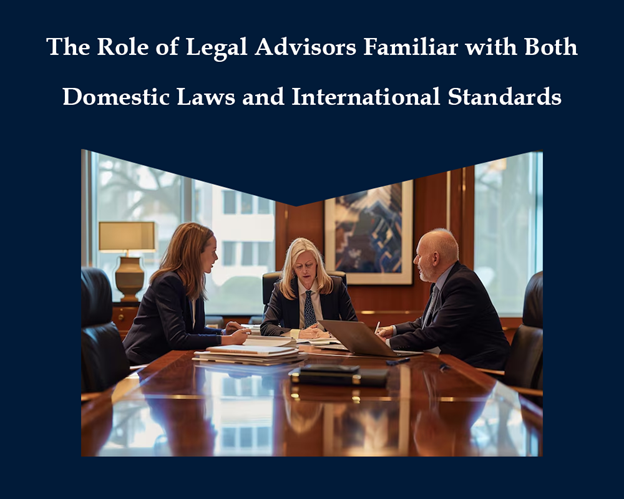
- Complex Contracts Require Specialized Knowledge
Contracts like EPC (Engineering, Procurement, and Construction), JV (Joint Venture), and BOT (Build-Operate-Transfer) are commonly used in large projects such as infrastructure and energy; These contracts require coordination with government authorities and compliance with regulations concerning foreign investments and taxation in Iran. Without the proper understanding of these specialized contracts, negotiations can become difficult and risky.
If you’d like to understand the taxation implications for foreign investors in Iran, refer to the article «A Practical Guide to Iranian Tax Laws for Foreign Investors».
- Industry-Specific Regulations Matter
Each sector in Iran, such as oil and gas, renewable energy, or manufacturing, has its own set of legal requirements. A contract that works in one sector may not be suitable in another. It’s important to address the specific regulatory issues relevant to your industry to avoid unenforceable terms or unexpected liabilities.
- Tailoring Contracts to Local Realities
In markets like Iran, a generic contract might not cover important local considerations, such as sanctions, currency restrictions or local regulatory changes. It’s essential to tailor contract clauses (such as force majeure) to address these issues, ensuring they’re practical and enforceable under local conditions.
- Clear Dispute Resolution is Key
Dispute resolution clauses should be carefully drafted to ensure they are enforceable both in Iran and internationally. Iran’s legal system may not always align with global arbitration standards; so ensuring that your dispute resolution process works within both local courts and international frameworks is vital.

Navigating contracts in Iran requires careful planning and local legal insight. By understanding these complexities, businesses can avoid risks and negotiate deals that are legally sound and aligned with both local regulations and international standards.
How Can Legal Expertise Help You Build Long-Term Success in Iran’s Complex Market?
Navigating the complexities of the Iranian market can be challenging, especially when it comes to negotiating and drafting various types of contracts. Whether you are entering into a supply agreement, service contract or shareholder agreement, obtaining legal advice at every stage — from negotiation to finalization — is essential for safeguarding your business and fostering long-term, successful collaborations. Here’s how legal expertise can help support your business in this process:
1. Comprehensive Legal Support for All Commercial Contracts
Legal experts with in-depth knowledge of drafting and negotiating are crucial for supporting all types of commercial agreements; These include franchise, supply, distribution and agency agreements, each of which carries distinct strategic and legal significance. For example:
- Franchise Agreements: A franchise agreement needs to clearly outline brand usage rights, operational standards and termination clauses. In markets like Iran, where franchise laws may not be clearly codified, the stakes are higher. Legal experts ensure that the agreement is properly structured to protect intellectual property, branding rights and regulatory compliance.
- Supply and Distribution Agreements: These types of contracts involve the sale or distribution of goods and they often need to address complex logistical, pricing and delivery terms. A well-drafted contract can prevent future disputes by clarifying roles, responsibilities and expectations.
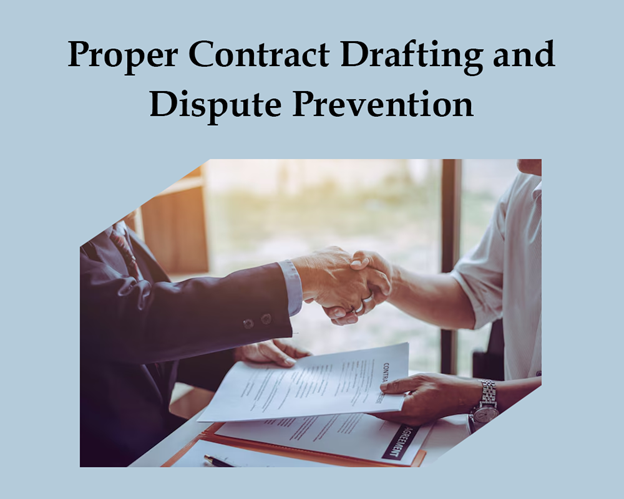
- Agency Agreements: Legal guidance helps define the scope of authority given to agents, compensation terms and termination provisions; These contracts are particularly important when expanding into new regions, such as Iran, where understanding local business practices and legal frameworks is key.
2. Importance of Pre-Contractual Documents
Before entering into binding contracts, businesses often use documents like Letters of Intent (LOIs), Memoranda of Understanding (MOUs) or preliminary agreements to establish the framework for future negotiations. While these documents may appear informal, they can carry significant legal weight in many jurisdictions. Legal precision is essential in drafting these documents to ensure they:
- Set clear expectations: LOIs and MOUs help align parties on the general terms before committing to a formal contract.
- Avoid unintended obligations: An improperly drafted LOI, for instance, can inadvertently bind parties to obligations that were not originally intended. A legal expert ensures that these documents are drafted clearly to distinguish between binding and non-binding clauses, protecting the business from unforeseen risks.
3. Reviewing and Renegotiating Existing Contracts
Markets are dynamic, and circumstances change. Whether due to shifts in economic conditions, evolving market trends or changes in local regulations, existing contracts might need to be reviewed and renegotiated. Legal professionals help businesses:
- Adapt to market conditions: Adjusting terms and conditions in response to market fluctuations ensures that businesses remain competitive.
- Respond to regulatory changes: New laws or regulations can impact contractual obligations. Legal advisors ensure that businesses remain compliant and help renegotiate terms where necessary.
- Limit exposure to legal risks: A review of existing contracts ensures that businesses are protected against potential legal challenges or liabilities arising from outdated or unaligned agreements.
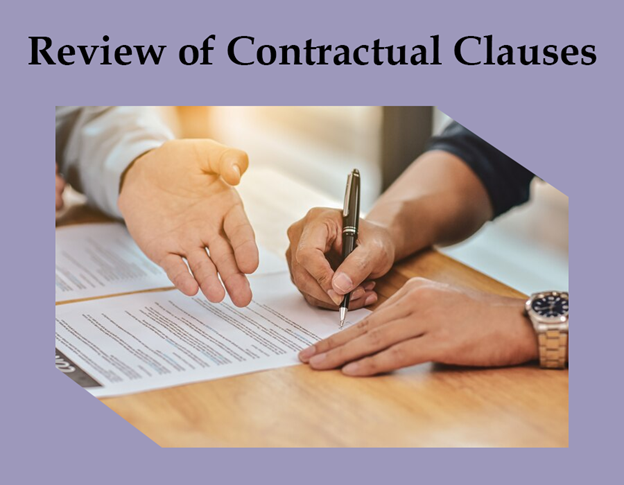
4. Ensuring Enforceability and Dispute Resolution
Drafting a contract is only valuable if it is enforceable. Legal experts play a crucial role in ensuring that contracts are crafted in a way that allows them to be upheld in court or through arbitration if a dispute arises. Legal guidance on dispute resolution involves:
- Identifying the best enforcement mechanisms: Whether it’s local courts, international arbitration or hybrid mechanisms, legal professionals help determine the most suitable method of dispute resolution based on the nature of the contract and the jurisdiction.
- Mitigating risks of non-compliance: A well-enforced contract helps businesses manage risk and maintain strong relationships with partners, suppliers or clients.
5. Tailored Legal Solutions for Your Specific Needs
Every business and every contract is unique. Legal expertise ensures that your contracts are tailored to your specific needs, addressing the nuances of your industry and market conditions. Whether you’re dealing with a single agreement or managing multiple contracts across different markets, a legal professional can offer personalized advice that aligns with your business goals and minimizes potential legal pitfalls.
Legal expertise in negotiating, drafting, reviewing and enforcing contracts is crucial to the long-term success of your business in the Iranian market. By working with qualified legal service providers, you ensure that your contracts are not only legally sound but also strategically aligned with your business objectives; This proactive approach can help safeguard your interests, avoid costly disputes and foster sustainable business growth.
For a deeper understanding of the entry strategies into the Iranian market, refer to the article «A Simple Guide to Entering the Iranian Market; Choosing the Right Legal Structure for Foreign Investment».

Are You Making These Common Mistakes in Contract Drafting? Here’s How to Avoid Them
Effective contract drafting goes beyond legal knowledge; it’s about ensuring clarity, precision and effective communication. Here are some straightforward yet critical tips that can help you create contracts that are clear, enforceable and practical:
- Prioritize Thorough Negotiation Before Drafting
Before diving into drafting any contract, prioritize open discussions about the key clauses that could lead to future disputes; These include payment terms, delivery timelines, liability and termination clauses. These elements are often at the heart of misunderstandings; so it’s essential to align expectations from the start. Begin with sharing an outline or summary of the essential terms and allow both parties to confirm and clarify them. Once this is agreed upon, proceed with drafting the full contract and circulate it for further comments; This phased approach helps prevent unnecessary revisions and saves time in the long run.
- Avoid Ambiguity; Be Clear and Precise
Ambiguity is one of the leading causes of contract disputes. In legal drafting, every word carries weight. Avoid terms like “best efforts”, “reasonable time” or “appropriate conditions”, as these are subjective and open to interpretation. In particular, be cautious with words like “and”, “or” and “and/or”; These seemingly small connectors can change the meaning of an entire clause. For example, saying “the goods must be inspected and/or tested” raises the question: does it mean both actions are required or just one? Be precise to ensure there’s no room for confusion or misinterpretation.
- Double-Check Numbers; Words and Figures Matter
Always write numbers in both words and numerals, such as “twenty (20) days” or “one hundred (100) units”; This seemingly minor detail prevents discrepancies in interpretation, especially in international contracts, where number formatting can vary (e.g., in some countries, “1.000” means one thousand, while in others, it could mean one). Such discrepancies have led to costly legal disputes. Always double-check that numbers are consistent and clearly expressed to avoid any confusion.

- Define Key Terms Upfront for Clarity
A well-drafted contract typically starts by defining the key terms that will be used throughout the document; This section, often found as Article 1, reduces ambiguity and ensures all parties have a clear understanding of the language used. For instance, terms like “Services”, “Products”, “Effective Date” and “Force Majeure” should be defined upfront; This is particularly important in contracts that span multiple parties or jurisdictions. For example, in a software licensing agreement, the term “Licensed Territory” should be specifically defined — does it cover the entire Middle East or only Iran? Properly defined terms reduce misinterpretation and make the contract easier to enforce.
- Choose the Right Governing Law and Dispute Resolution Approach
A well-drafted contract anticipates potential disputes by selecting the governing law in advance; This ensures that both parties know which legal rules will apply if a dispute arises. For cross-border contracts, such as a joint venture between companies in Iran and Germany, specifying the governing legal system reduces confusion and uncertainty caused by conflicting laws; It also helps avoid delays and costly legal procedures. Clarifying the governing law from the beginning ensures both parties are on the same page regarding the legal framework that will govern their relationship.
If you’re unsure whether to opt for arbitration or litigation in your cross-border contracts, our article «Key Insights into Commercial Arbitration Every Business Owner Should Know» offers a practical comparison to help you decide.
- Litigation vs. Arbitration; Make an Informed Choice
The method of dispute resolution is an essential decision in any contract. If both parties are in the same country and familiar with local legal procedures, litigation might be a suitable choice. However, for international contracts, arbitration is often the preferred method due to its confidentiality, flexibility, and international enforceability. Arbitration under frameworks such as the New York Convention provides a neutral ground for resolving disputes, making it ideal for parties in different jurisdictions. For example, arbitration held in Paris under ICC Rules can offer an impartial and well-recognized platform. It’s also important to specify the “seat” of arbitration, as this determines the procedural law that will apply.
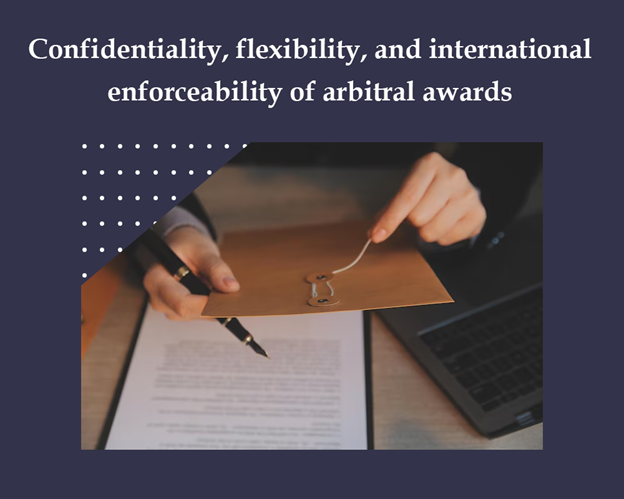
- Implement a Tiered Dispute Resolution Process for Long-Term Contracts
For long-term contracts, a tiered dispute resolution clause can be a highly effective tool. This might include a sequence of steps, such as negotiation first, followed by mediation, and finally arbitration; This approach encourages parties to resolve disputes amicably before resorting to more formal proceedings, preserving the business relationship while still providing a clear path to resolution. A tiered clause can also help reduce the cost and time involved in resolving disputes, as it encourages early resolution and avoids protracted litigation or arbitration.
By following these simple yet essential contract drafting tips, you can ensure that your contracts are not only legally sound but also practical and enforceable. Clear terms, precise definitions, and careful consideration of dispute resolution methods are crucial to minimizing risks and ensuring that your contracts work effectively in practice. A well-drafted contract sets the foundation for a successful business relationship, preventing misunderstandings and protecting both parties’ interests.
Given the complexities involved in contract law, especially in the context of international business and markets like Iran, consulting with specialized legal professionals is essential. Contracts are not just formalities; they play a crucial role in managing risks, ensuring compliance and avoiding costly disputes.
If you need assistance or legal advice regarding contract drafting, negotiation or enforcement, our legal experts at Libralaw Firm are here to help. With extensive experience and specialization in this area, we can guide you through the intricacies of contract law and provide the legal support you need to protect your interests. Contact us today to ensure your contracts are clear, enforceable and strategically aligned with your business objectives.




